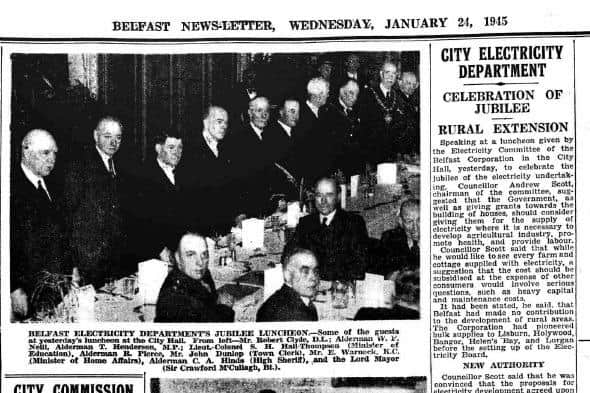City electricity department celebrates Jubilee (1945)
and live on Freeview channel 276
Councillor Scott said that while he would like to see every farm and cottage supplied with electricity, suggestion that the cost should be subsidised at the expense of other consumers would involve serious questions, such as heavy capital and maintenance costs.
It had been stated, he said, that Belfast had made no contribution to the development of rural areas. The Corporation had pioneered bulk supplies to Lisburn, Holywood. Bangor, Helen’s Bay and Lurgan before the setting up of the Electricity Board, he said.
Advertisement
Hide AdAdvertisement
Hide AdCouncillor Scott said that he was convinced that the proposals for electricity development agreed upon between representatives of the Ministry of Commerce and the Corporation would, if carried into effect, be for the good of the Province.


He said: “There are in Northern Ireland many natural resources capable of being developed for the production electrical energy.”
Councillor Scott was replying a toast to the Corporation and the Electricity Committee, proposed by Mr Edmond Warnock, Minister of Home Affairs.
Mr Warnock said that the undertaking was a credit to the city, monument to those who built it, and source of pride to the Corporation and the citizens. He said: “It is performing, in exceptional circumstances, a service not only civic, but national, and assisting very greatly in the war effort. In the last 25 years, the number of units generated has increased tenfold. Fuel consumption is now only a third of what it was then, and in 1938 - the last normal year - the cost of production would be challenged by probably only two other stations in the United Kingdom.”